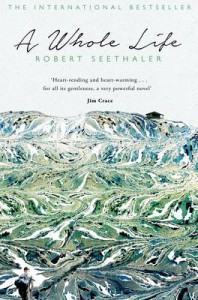 My first stop on this Man Booker International Prize journey is Austria, and a book that passed me by completely prior to its longlisting. The fulcrum of Robert Seethaler’s short (150 pages) novel is Andreas Egger, who is brought to his uncle’s farm as a boy in 1902. Egger remains in the same mountain village all his life, apart from two months serving on the front in Russia and the subsequent eight years as a prisoner in the gulag. A broken leg in childhood leaves Egger with a permanent limp, but he is otherwise strong and agile. The mountains are in his bones:
My first stop on this Man Booker International Prize journey is Austria, and a book that passed me by completely prior to its longlisting. The fulcrum of Robert Seethaler’s short (150 pages) novel is Andreas Egger, who is brought to his uncle’s farm as a boy in 1902. Egger remains in the same mountain village all his life, apart from two months serving on the front in Russia and the subsequent eight years as a prisoner in the gulag. A broken leg in childhood leaves Egger with a permanent limp, but he is otherwise strong and agile. The mountains are in his bones:
Sometimes, on mild summer nights, he would spread a blanket somewhere on a freshly mown meadow, lie on his back and look up at the starry sky. Then he would think about his future, which extended infinitely before him, precisely because he expected nothing of it. And sometimes, if he lay there long enough, he had the impression that beneath his back the earth was softly rising and falling, and in moments like these he knew that the mountains breathed.
Everything in A Whole Life returns to the landscape: the encroachment of modernity is symbolised by the cable car being built in the valley, which will bring electricity and more besides. The Second World War happens largely at a distance: for Egger it’s mostly a matter of boring holes in rock, cutting wood, marking time in the camp. Towards the end of his life, thinking to broaden his horizons, Egger takes the bus to its last stop; when he gets there, he has no idea where to go – he may have spent his life in the same place, but that place is his life to a great extent.
In the latest edition of the Peirene Press newspaper, the writer Cynan Jones has an article in praise of short novels:
There’s no room for digression. No room for passenger writing. Every word is doing a job. So pay attention. A short novel is an event, not a trip.
I was reminded of this very much when reading A Whole Life: since the book’s canvas is so large in comparison to the page-count, the account of Egger’s life seems distilled to its essence. The quiet precision of Charlotte Collins’ translation underlines how deeply Egger is connected to his specific surroundings.
I was also put in mind of Angharad Price’s superb The Life of Rebecca Jones (2002; translated by Lloyd Jones, 2010), another short novel about a character who lives for much of the 20th century in the same place. The experiences of their protagonists are rather different, but both novels show lives lived fully despite being bounded geographically. The title of Seethaler’s book is apposite in more ways than one: yes, it chronicles Andreas Egger’s ‘whole’ life from beginning to end; but that life is also whole because it’s lived in the round, for good and ill.

Is this book a shortlist contender?
I’m not sure yet. To my mind, A Whole Life is a solid nominee; but it feels more like a book that may round out my personal shortlist, rather than a shoo-in. Time will tell…
Elsewhere
Nobody else on the shadow panel has reviewed A Whole Life as yet, but you can find more reviews at Lizzy’s Literary Life, Vishy’s Blog, and A Life in Books.
Book details (Foyles affiliate link)
A Whole Life (2014) by Robert Seethaler, tr. Charlotte Collins (2015), Picador paperback.
Read my other posts on the 2016 Man Booker International Prize here.
Like this:
Like Loading...
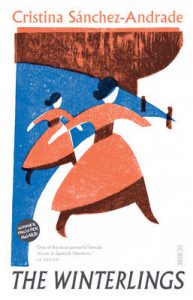 The Winterlings by Cristina Sánchez-Andrade (tr. Samuel Rutter). Twenty-five years after being evacuated to England, two sisters return to the Galician parish of their childhood. The place is otherworldly to them, but they also have a glamour of their own – and so mystery encroaches on the reader from all sides. Reviewed for European Literature Network.
The Winterlings by Cristina Sánchez-Andrade (tr. Samuel Rutter). Twenty-five years after being evacuated to England, two sisters return to the Galician parish of their childhood. The place is otherworldly to them, but they also have a glamour of their own – and so mystery encroaches on the reader from all sides. Reviewed for European Literature Network.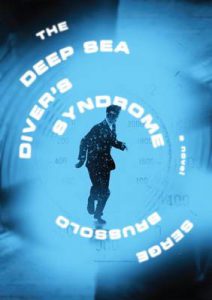 The Deep Sea Diver’s Syndrome by Serge Brussolo (tr. Edward Gauvin). A tantalising slice of weirdness set in a reality where art is retrieved from the depths of dreams. One man believes that the dream realm has its own objective existence – and he’ll risk his very self to prove it. Reviewed for Strange Horizons.
The Deep Sea Diver’s Syndrome by Serge Brussolo (tr. Edward Gauvin). A tantalising slice of weirdness set in a reality where art is retrieved from the depths of dreams. One man believes that the dream realm has its own objective existence – and he’ll risk his very self to prove it. Reviewed for Strange Horizons.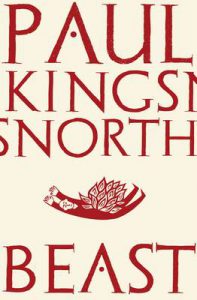
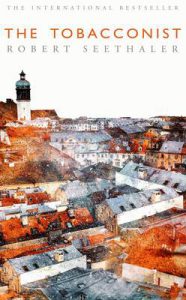


Recent Comments